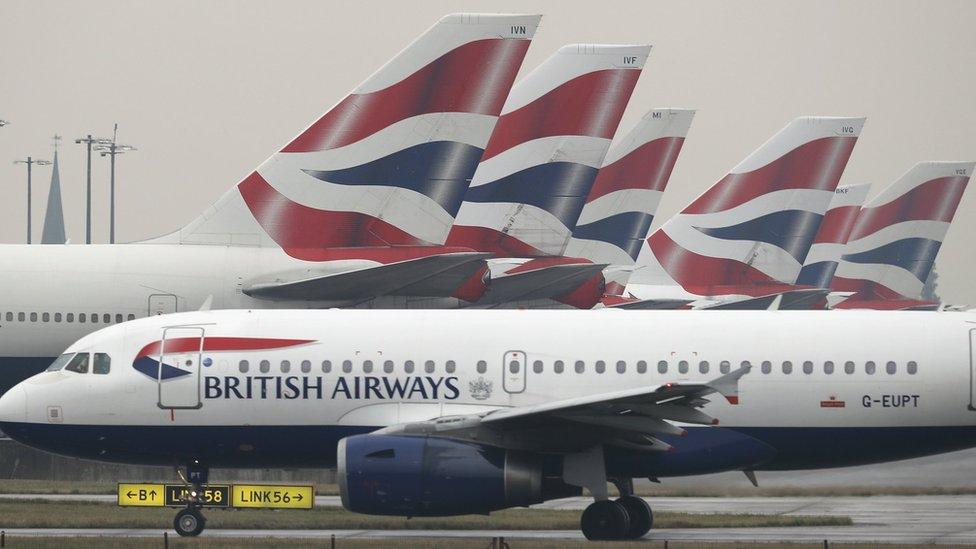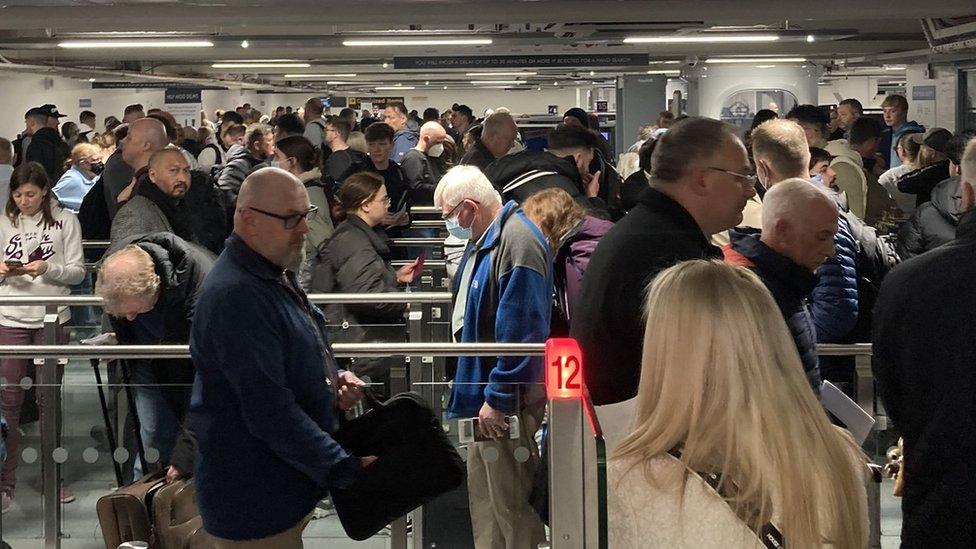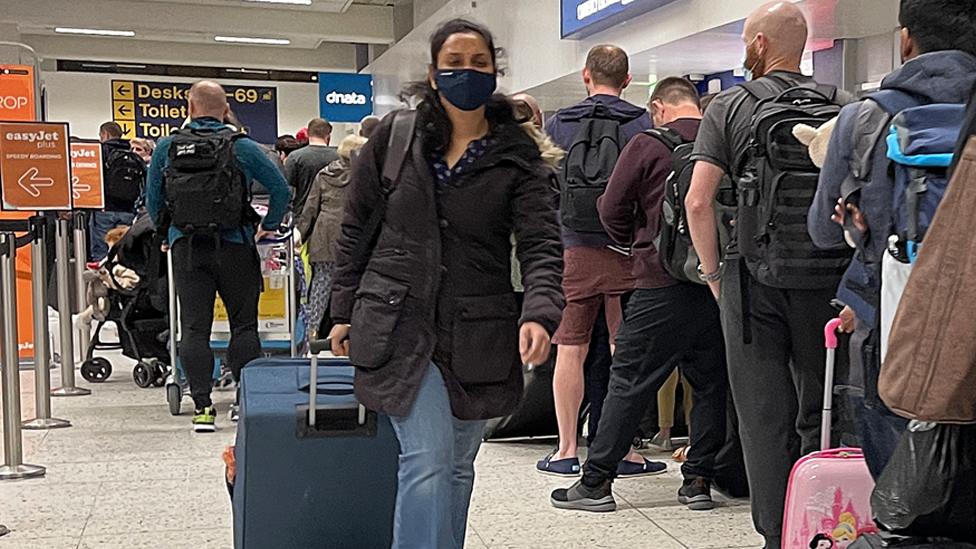Flight cancellations continue due to staff shortages
- Published
- comments

British Airways has cancelled four flights at Heathrow Airport today due to Covid-related absences, on top of 74 services previously withdrawn.
The airline had already signalled it intention to cancel most of the flights following a decision to reduce its schedule until the end of May.
But recent high levels of staff absence due to Covid have meant further flights being called off ahead of Easter.
EasyJet cancelled about 30 flights at Gatwick Airport on Wednesday.
Thousands of holidaymakers have seen their Easter getaways - the first holiday since the end of Covid travel restrictions - delayed or cancelled because airlines and airports do not have enough staff to meet the recovery in demand.
BA withdrew six flights at the last minute on Tuesday as a result of Covid absences.
On Monday, it cancelled scheduled 62 flights but 12 of them were grounded at the last minute.
Covid-related absences have compounded staff shortages at airports and airlines, and the industry is struggling to recruit staff after thousands of jobs were lost and many workers left the during the pandemic.
EasyJet has said its staff absences were double their normal levels due to Covid.
The airline said the main routes affected by cancellations were to Amsterdam, Krakow, Bologna and Berlin.
Staff shortages have led to passengers having to face long delays at security and check-in at some airports, with travellers complaining of "chaos".
Problems at Manchester Airport led to Karen Smart, the airport's managing director, announcing on Tuesday that she would stand down.
It came after Greater Manchester Mayor Andy Burnham said police and fire and rescue service staff could be drafted in to help tackle the chaos.
Problems to continue
Former Monarch Airlines boss Tim Jeans, who is now director of Cornwall Airport Newquay, told the BBC's Today programme levels of disruption had varied across the country.
"The problems at Manchester and to a lesser extent at Heathrow are stand out problems because other airports like Birmingham, Gatwick, Newcastle and Glasgow they've not seen the type of problems Manchester and Heathrow have," he said.
"The issue really has been you have to plan to recruit to train, in a very difficult labour market, many many many months in advance and it would appear that Manchester for whatever issues they have had, simply didn't do that."
Mr Jeans said it takes on average at least 12 weeks to recruit and train new security staff and predicted it would be "the middle of June before we see a significant easing of these issues".
Related topics
- Published5 April 2022

- Published5 April 2022
